Alexandria Ocasio-Cortez Wants To Bring Grassroots Organizing To Washington
QUEENS, N.Y. ― Alexandria Ocasio-Cortez, a 28-year-old Latina community organizer and member of the Democratic Socialists of America, pulled off a historic upset on Tuesday, unseating Rep. Joseph Crowley (N.Y.), the House Democratic Caucus chairman, in the primary.
Since New York’s 14th Congressional District is a safe Democratic seat, Ocasio-Cortez is now almost certain to represent the district in Congress where she will be one of the youngest and most progressive members.
Last week, HuffPost caught up with Ocasio-Cortez after a campaign news conference in the Elmhurst neighborhood. Ocasio-Cortez discussed her campaign strategy, New York’s regressive election rules, her criticism of Crowley, her priorities if elected, and how she plans to use her organizing experience to pass progressive legislation on Capitol Hill.
This interview has been lightly edited and condensed for clarity.
This community has been changing for a long time and yet there has still been the same representation for a long time. What are you doing to make sure that people who don’t normally vote, or don’t even know about the primary, are turning out?
When we say there is a machine in Queens, what does a machine mean? A machine means that you mobilize the people that have already been there. You tap your local city councilman that has been appointed, you tap your local assemblyman to do that work for you.
But what we’re doing is we’re doing that work for ourselves.
What I think is really important is courting people in the community who are really never spoken to, and really just walking that walk throughout our campaign. There are very little things that make a big difference. The fact that all of our literature is bilingual ― it tells people we are talking to them and that they aren’t being spoken to second or third but that they are spoken to first along with the English-speaking [people] and everybody else as well. That’s what we are really trying to communicate here, not just with the Latino community but with the Bengali community, with the Mandarin-speaking community. We campaign in about four languages, at least.
Walking that walk, speaking out to a community that’s normally not spoken to, we are getting a response. Because there’s usually a self-fulfilling prophecy where people say, “This community doesn’t vote so I’m not gonna knock on their door.” And everything from our field to our messaging is an invitation to participate for the first time. When we make that very clear not just in our actions, but the way that we speak, the community responds.
Do you think the New York primary system is set up to protect incumbents and even suppress votes? For example, the state has two separate primary days for state and federal elections.
There’s no question. It’s an open secret that New York is one of the worst offenders in voter suppression in the United States. In 2016, we had the second-lowest primary turnout, second only to Louisiana.
There is kind of a false pretense that the state and leaders in the state participate in, that voter suppression is a Southern problem. And it’s not. New York is one of the worst offenders. We are one of the only Democratic states in the country that doesn’t have early voting, that doesn’t have same-day voter registration, that has closed primaries, that doesn’t have mail-in ballots. All of these things are so easy to remedy, and it is absolutely our leadership that refuses to change them. They should be held responsible for it.
Is Joe Crowley one of those people who has stood by the system of voter suppression? Does the system benefit him?
The system benefits incumbents and the system benefits those who have historically had power. He is absolutely a participant because he accepted being named to this seat [in a way that prevented a primary in 1998].
When you look at how he ascended to power ― even people in the machine in Queens at that time were shocked by how backroom it was.
The fact that he even accepted it is wrong.
You’ve talked a lot about the kind of donations that Rep. Crowley has taken and how that distinguishes your candidacies in a significant way. Is there a specific example of a policy that you believe he voted for that was motivated by a conflict of interest?
In 2015, he voted for a foreign real estate bill that basically deregulated foreign luxury real estate developers. The Sunlight Foundation documented that, right ahead of that vote, he received a surge of donations from the real estate industry. And he not just voted for this bill, he authored the bill and passed the bill.
Since passing the bill, the median price of a two-bedroom [apartment] in Queens has gone up 80 percent.
That’s outrageous! Such a jarring change is completely unsustainable for the working families here. It is a deliberate displacement of this community.
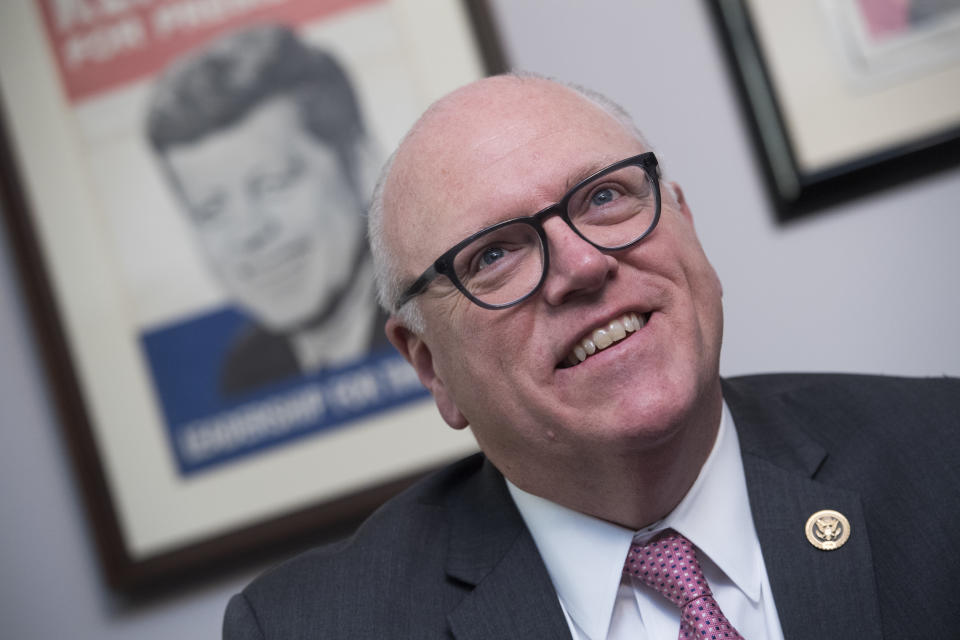
A lot of housing policy is state and local, though. How is it that a member of Congress like Crowley can influence that?
In this case, you have to look at what the setup is right now. Because Joseph Crowley is not just a congressman. He’s the chairman of the Queens Democratic Party.
He often translates these donations and uses his seat as the chairman to basically name lower-level seats, city council seats. It’s openly known here in the city that he had a very significant role in selecting the city council speaker. He translates [the financial support] he attracts on the federal level to leadership that rezones this community here on the local level.
In terms of the change that we seek to make here, again this is a movement. This is a movement candidacy. And I am just one of many. We have Julia Salazar who is running for state Senate out in Greenpoint. We’re going to be supporting her next. And we’re going to be mobilizing all the way down the ballot until we have noncorporate candidates that are represented at every level in our community.
Did California Rep. Ro Khanna’s decision to co-endorse you and Rep. Crowley, after initially only endorsing Crowley, boost your campaign?
It absolutely did. In two ways: One was just in terms of organizing. He didn’t do that endorsement just on his own. There was a very large amount of public pressure that was generated in that endorsement. So it organized a lot of people and galvanized a lot of people supporting our campaign.
And his consequent endorsement continued to mobilize a lot of folks as well. He was the first incumbent [member of Congress] to recognize our campaign’s existence, let alone endorse it, despite the fact that we have organized well over 16,000 people.
The co-endorsement aspect of it almost made it more newsworthy.
Even a full-on endorsement against the House Democratic Caucus chairman would have been pretty newsworthy.
But the co-endorsement was interesting because that is the progressive movement holding its leaders accountable. [Elected officials] try to dip their toe out and people hold them accountable.
The people power is very, very real. I don’t think a Wall Street donor could have forced that kind of course correction. That is the absolute power of popular support and organizing.
Have you been disappointed that more national Democratic figures have not endorsed you, especially with so much of the rhetoric they use about standing with people of color?
I’m not disappointed because I expected it. I’m not disappointed because that would require having a higher expectation of them.
We know that there are far too many people in the Democratic Party right now who talk the talk but don’t walk the walk. What they say sounds great and what they do is not good enough.
If you are elected you would be one of the most left-wing members of Congress ― if not the most. Are there any issues where you see opportunities for bipartisanship?
Absolutely. Eighty percent of Americans support the Dream Act. Criminal justice reform is now becoming a bipartisan issue that the Koch brothers are putting money behind.
It’s not even about left and right, it’s about up and down. Ninety percent of Congress right now is up there at the very top. And not enough members are standing with the majority of working-class Americans.
I don’t even consider myself left wing; I consider myself a working-class advocate.
It will certainly be a challenge to get that kind of [bipartisan] support.
That’s why, as an organizer and as an activist, I am also thinking outside the chamber as well. I think about what public pressure are we going to mobilize on our incumbents. How are we going to mobilize popular support around legislation?
In the same way that we killed the GOP health care reform, we can use those same tactics and measures to force a Dream Act, to force criminal justice reform, to force campaign finance reform. We can use those things not just to kill bills but to advance bills.
When Democrats know that their jobs are going to be on the line unless they vote for certain legislation, we can show a lot of things. It requires grooming and mounting more primaries. Because when we have more primary candidates, it not only forces incumbents to behave better ― we see that in my race ― but it also gives us the opportunity to elect candidates that are not actually beholden to [special interests].
Would you support Rep. Nancy Pelosi (D-Calif.) for House speaker?
First of all, I just disagree with the notion of throwing support behind any candidate before this race has even started. It is a wrong matter of course to pledge fealty before this race has even happened. I am open to seeing what options are out there.
Is some of the criticism of Pelosi motivated by sexism?
Totally. You’re able to have both of those kinds of opinions at once. It’s no secret I was an organizer for Bernie Sanders and I supported him in the primary, but that doesn’t mean that Hillary Clinton didn’t face her own challenges due to gender.
What is the first issue you’d push if elected?
Morally, we need to abolish [U.S. Immigration and Customs Enforcement].
We are now at a moral crisis with the development of what’s going on at the border. Pushing for an immediate stop to that if we haven’t done it by November is absolutely a No. 1 priority.
Strategically, Medicare for all. We as organizers have built enough co-sponsorship and support for it that we could get it done first.
If President Donald Trump wanted to meet you, would you do it?
Probably not. I would probably want conditions. I would make demands. I’m not gonna give him a photo op because he wants it.
Love HuffPost? Become a founding member of HuffPost Plus today.
Also on HuffPost
Taking Security Seriously
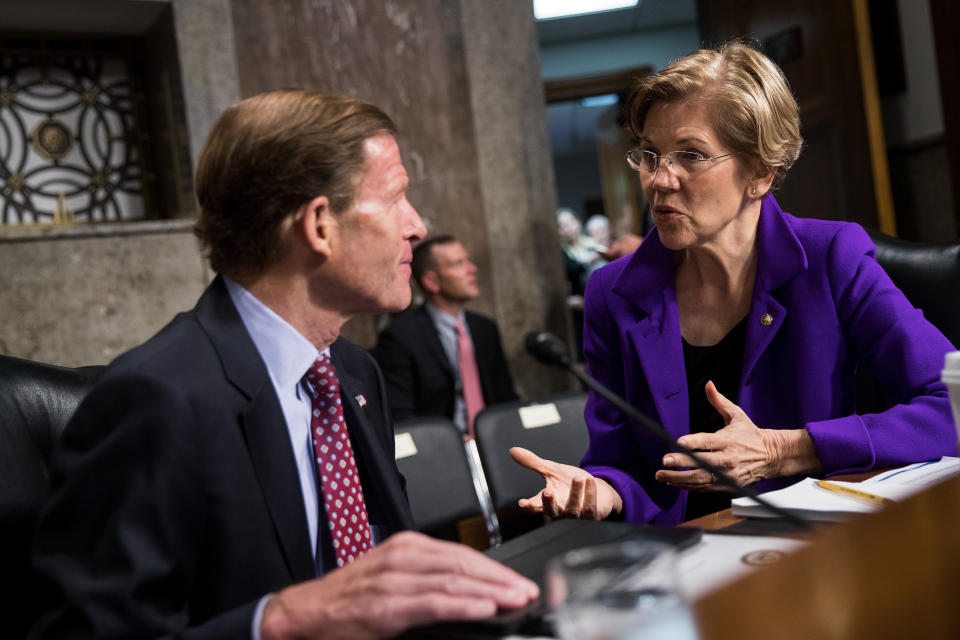
With Liberty And Justice...
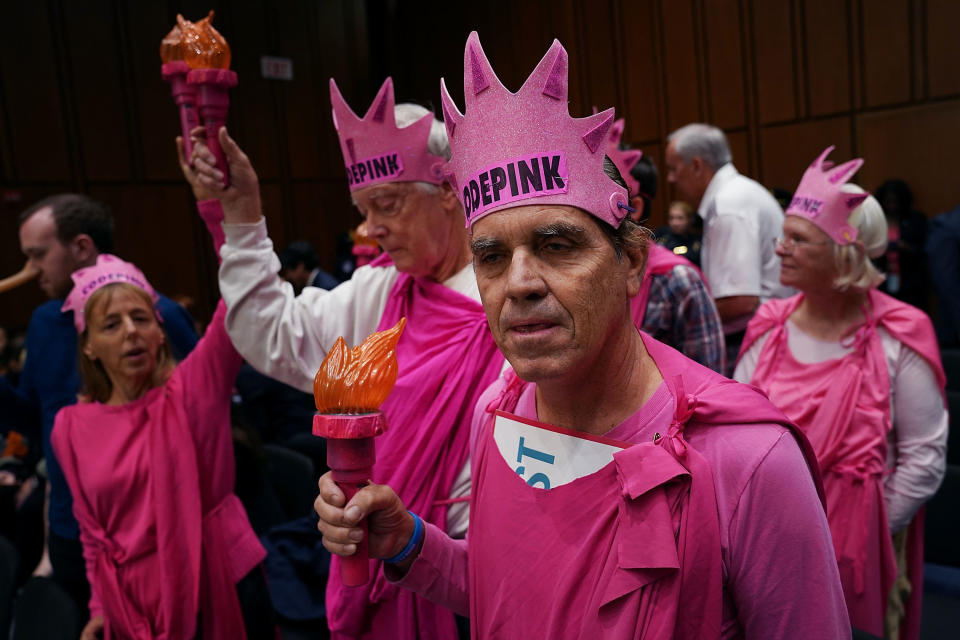
Whispers
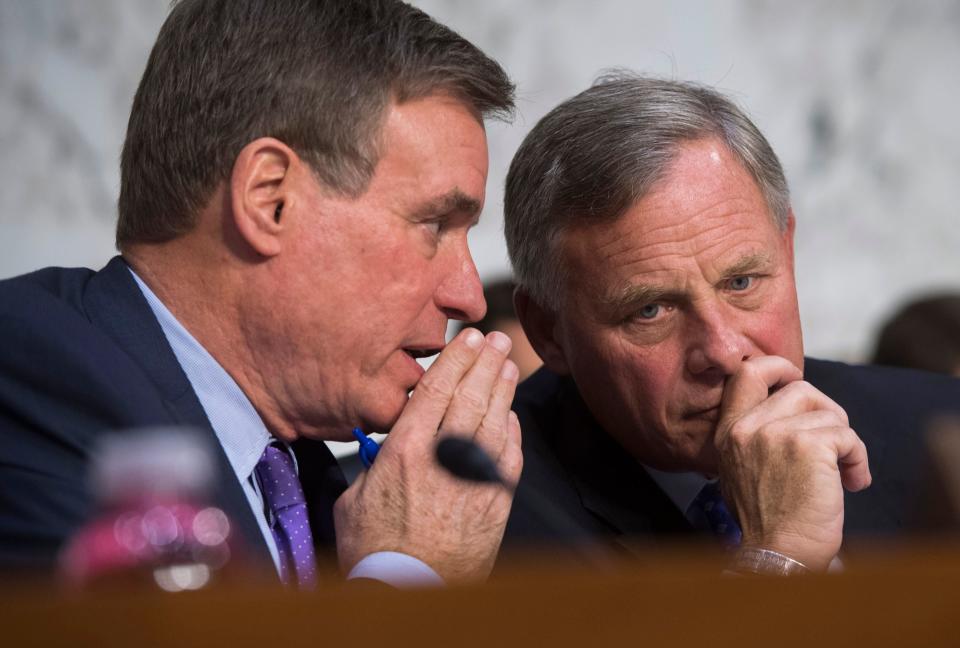
Not Throwing Away His Shot

Medicare For All
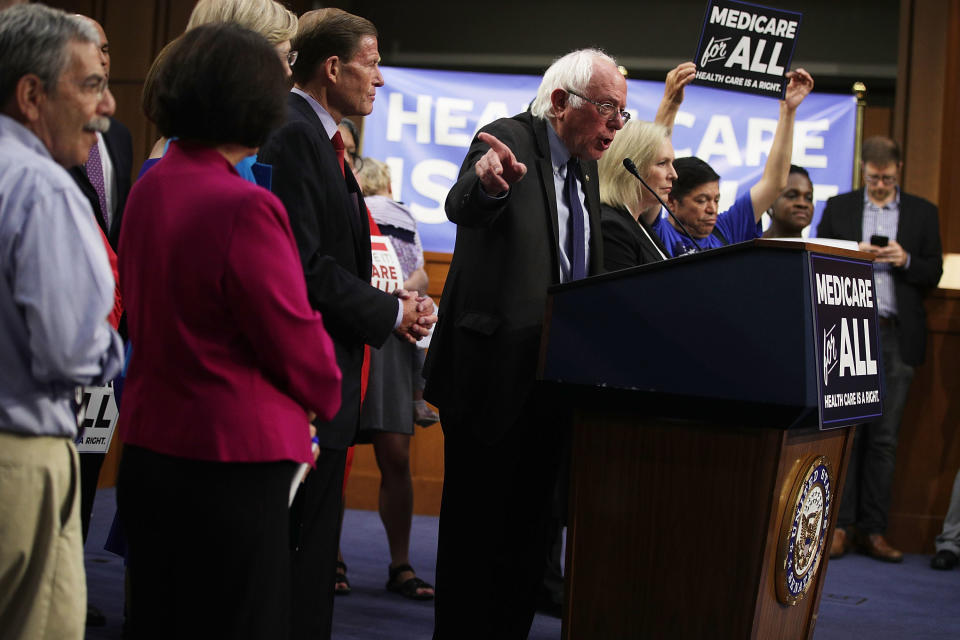
Bernie Bros
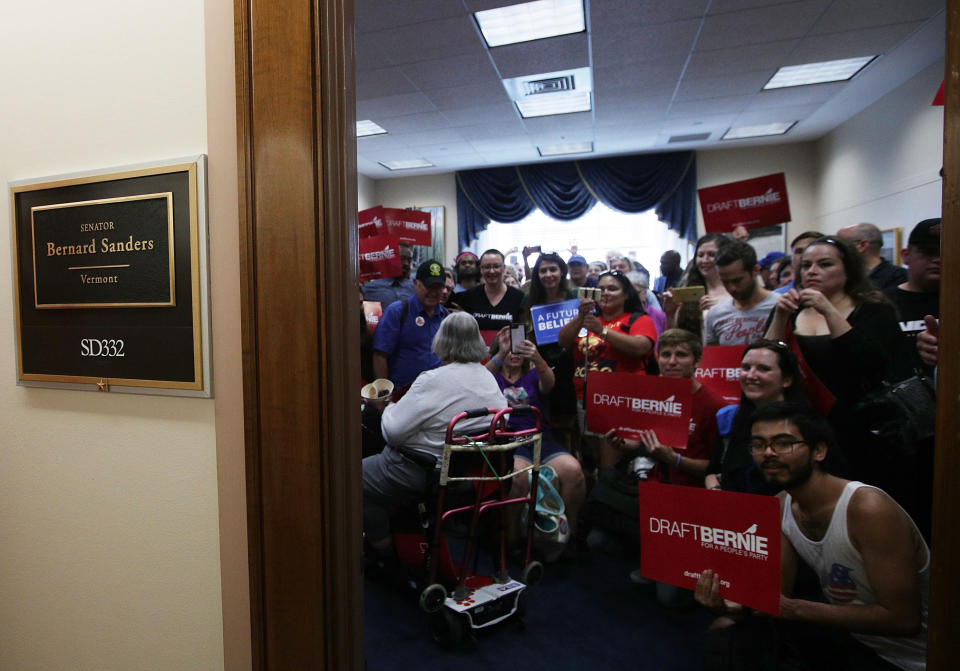
McCain Appearance
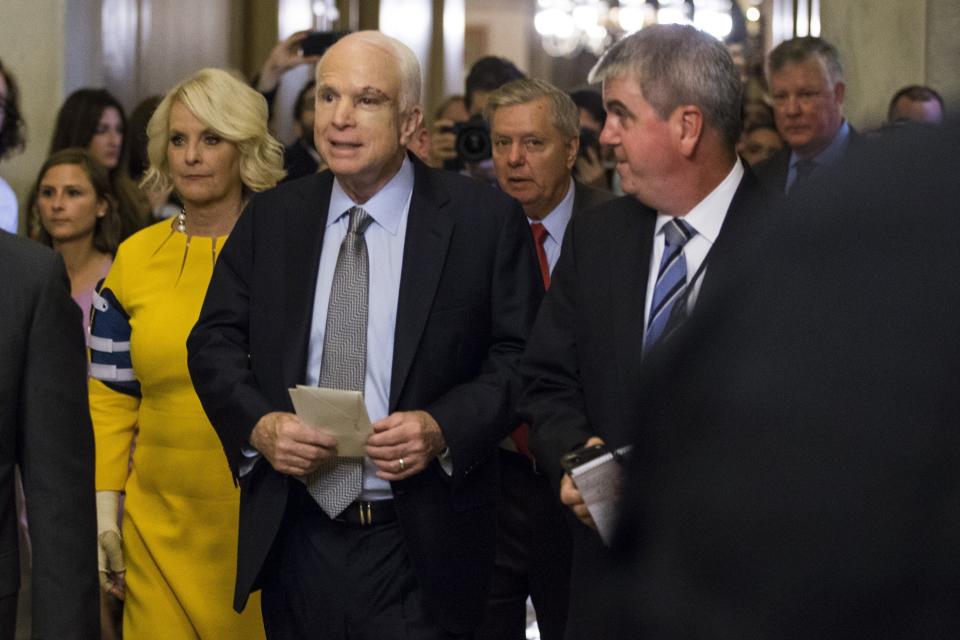
A Narrow Win
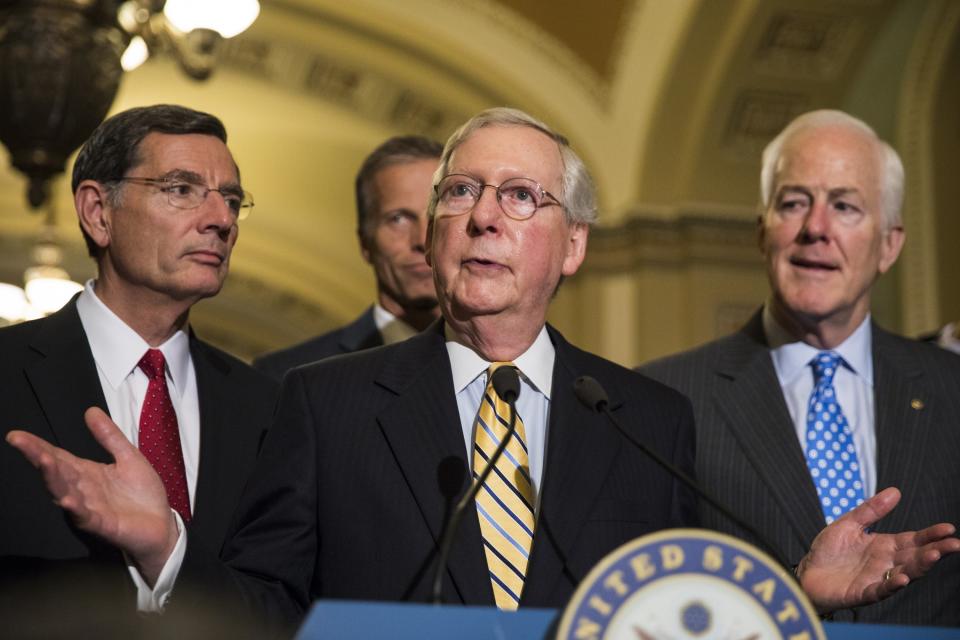
Kushner Questioning
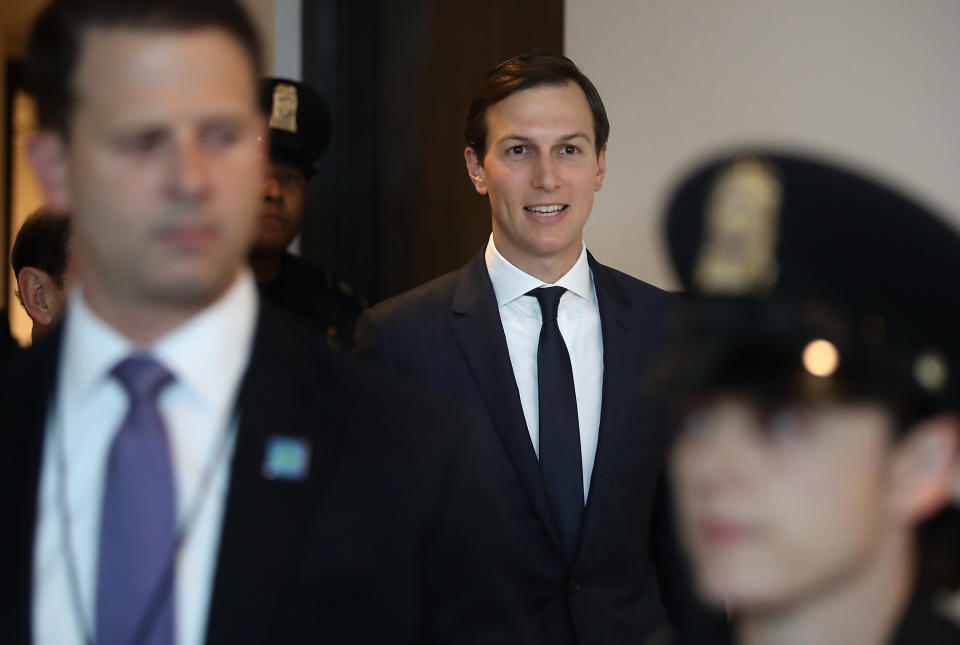
Hot Dogs On The Hill
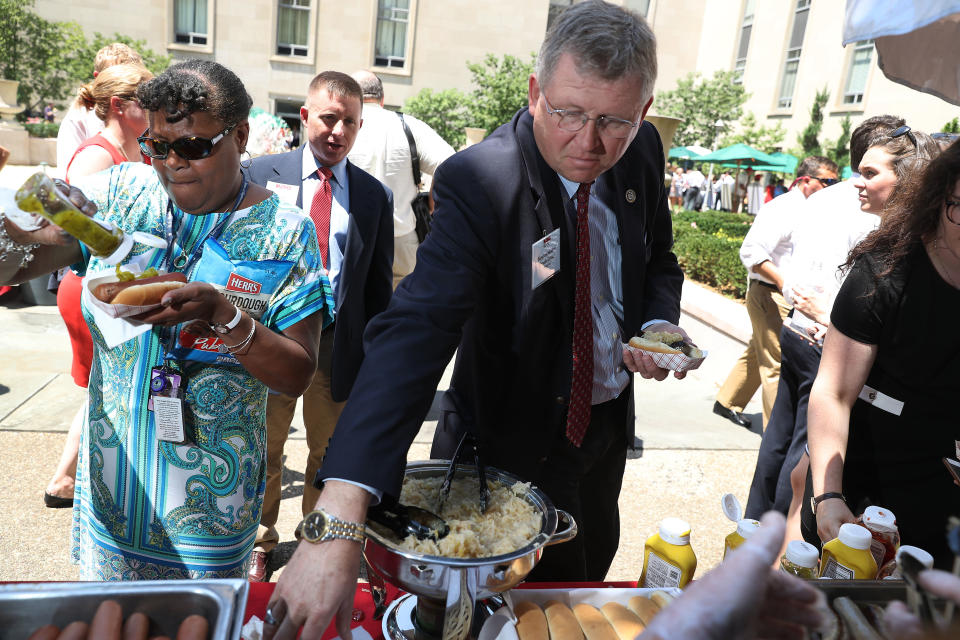
And Their Veggie Counterparts

Poised For Questions
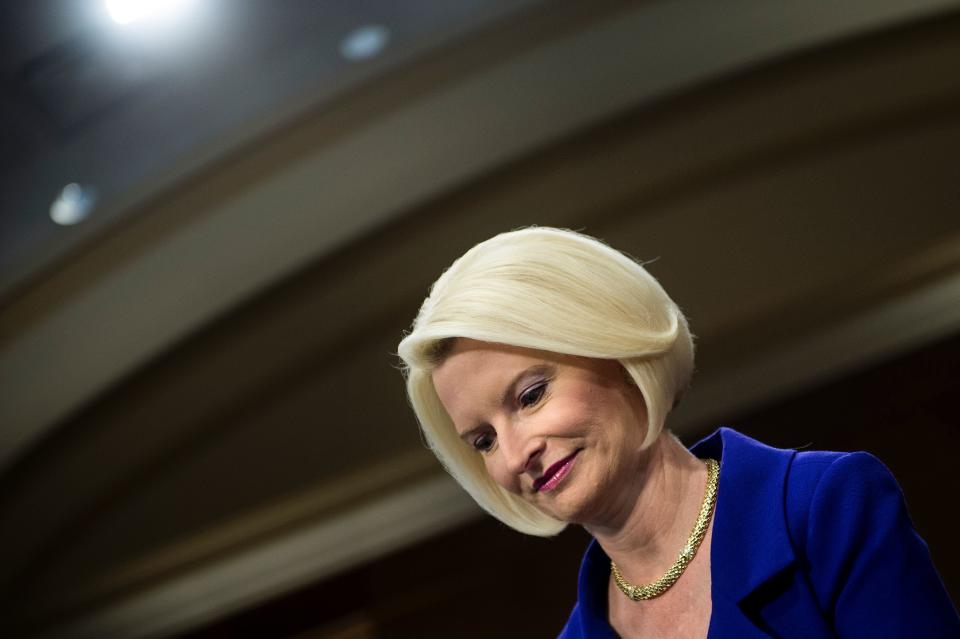
Speaking Up
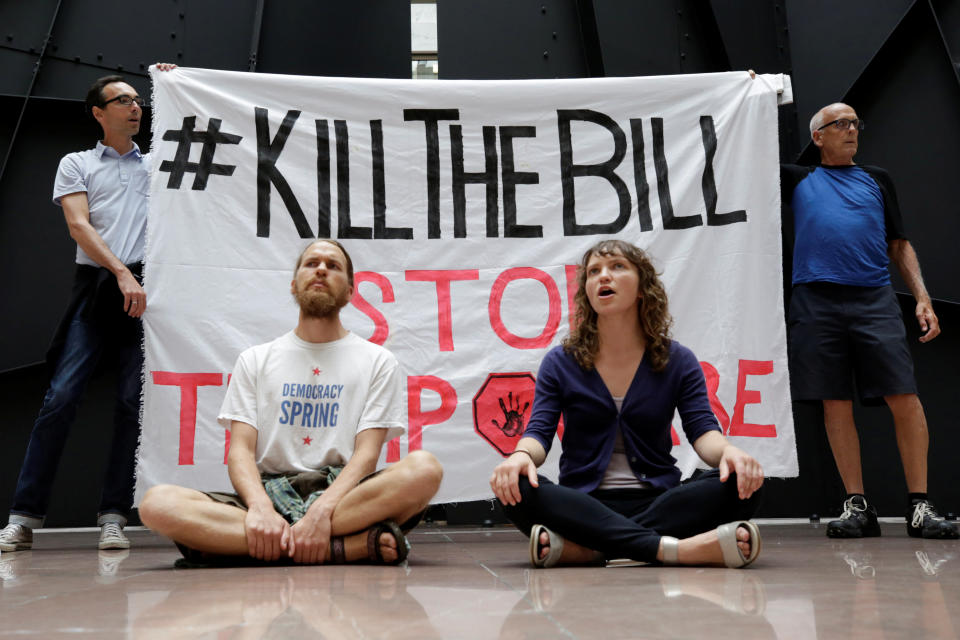
In The Fray

Anticipation
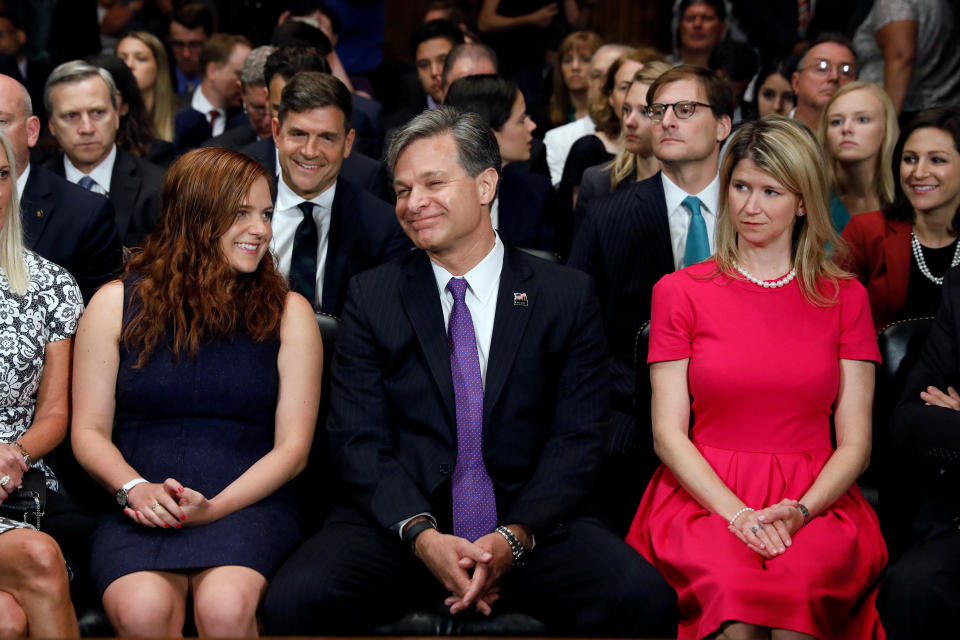
Up In Arms
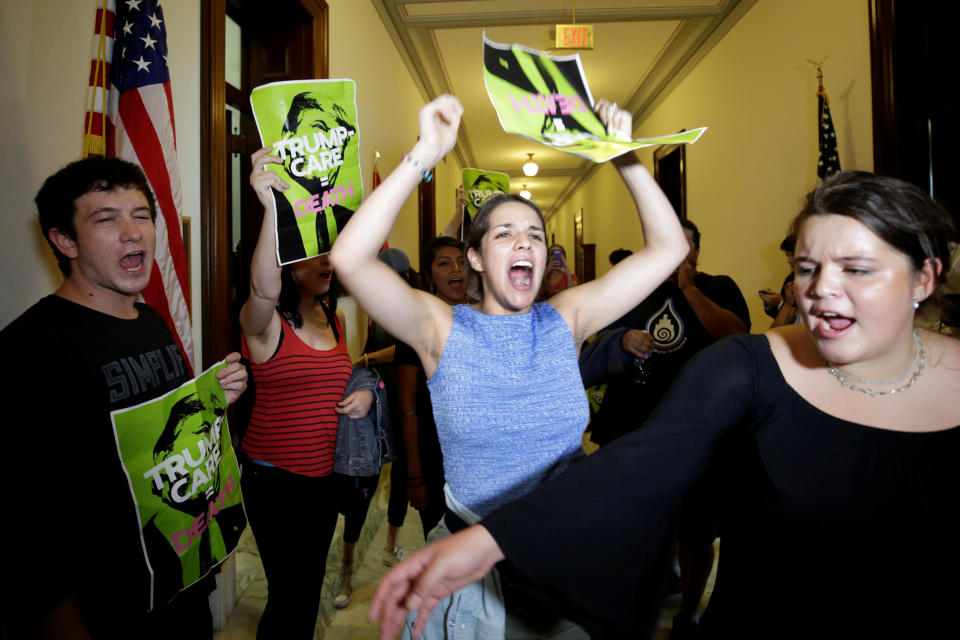
Across A Table
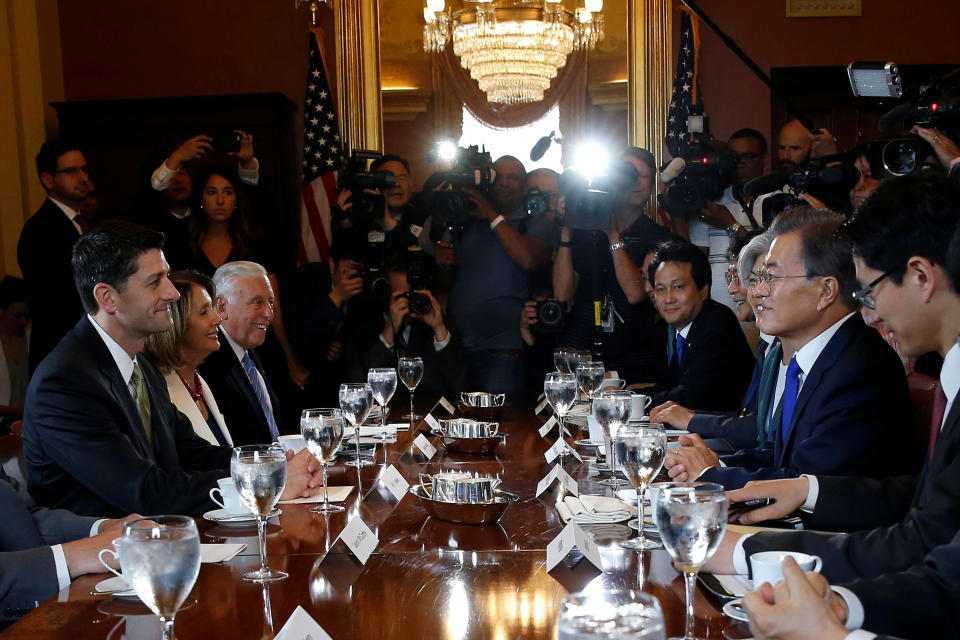
Somber Day
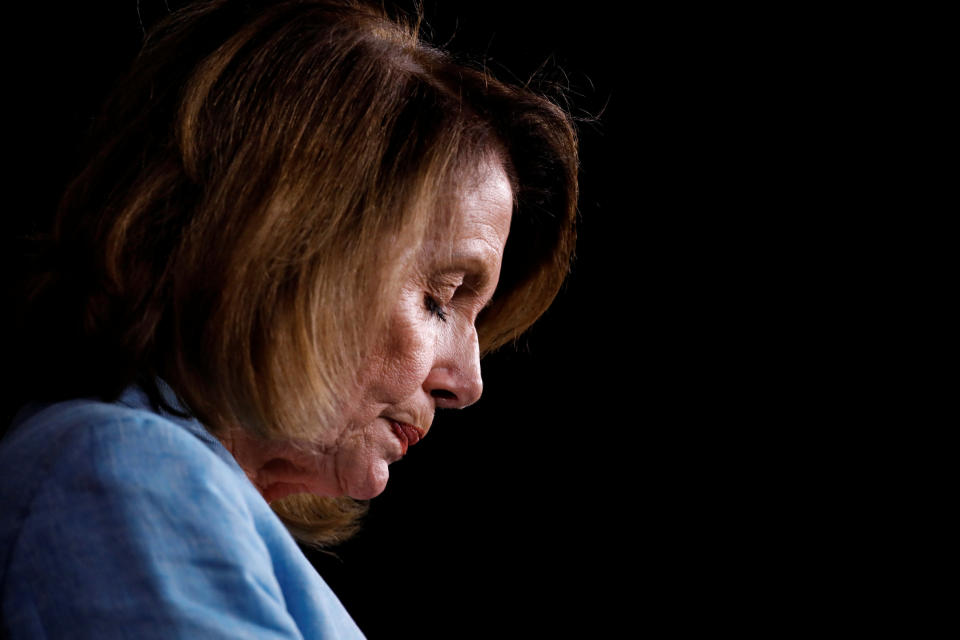
Family Matters

A Bipartisan Pause

Hats On

Public Testimony

Comey's Big Day
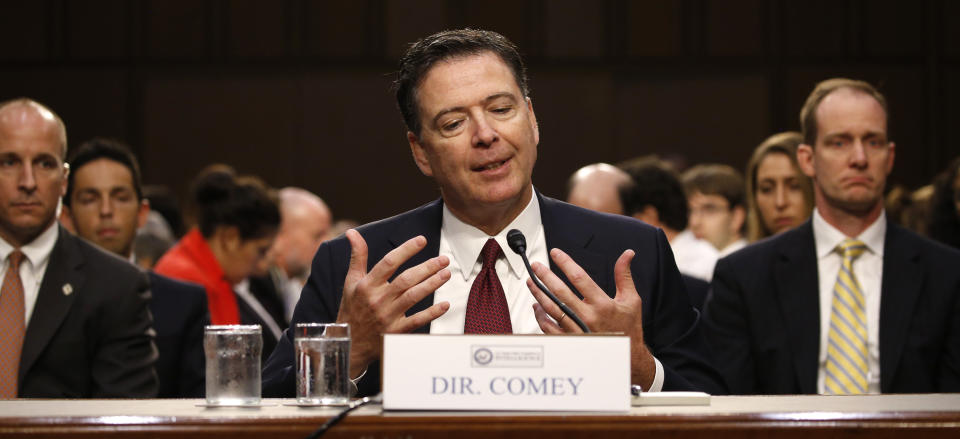
Conveying His Point
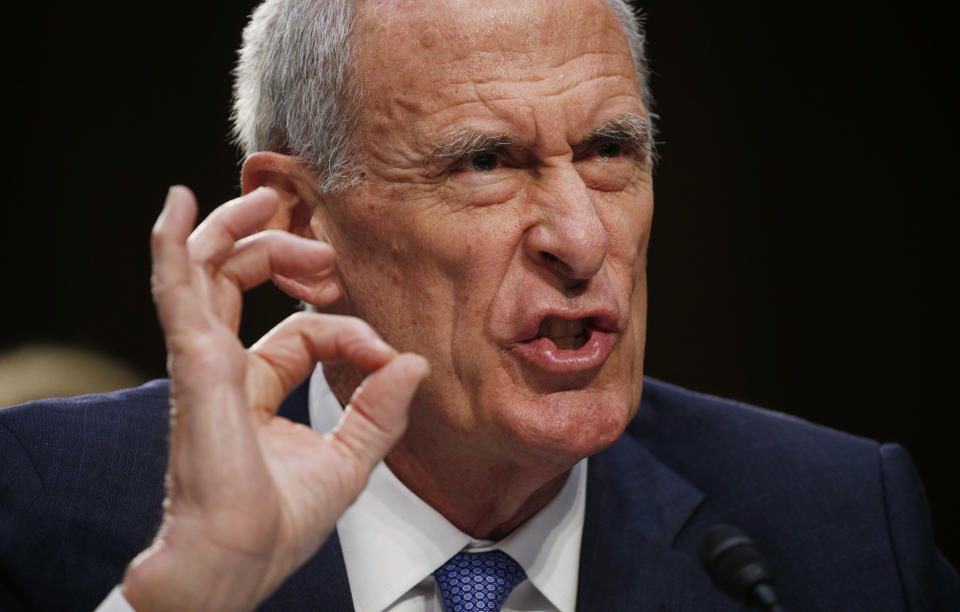
Selfie Time
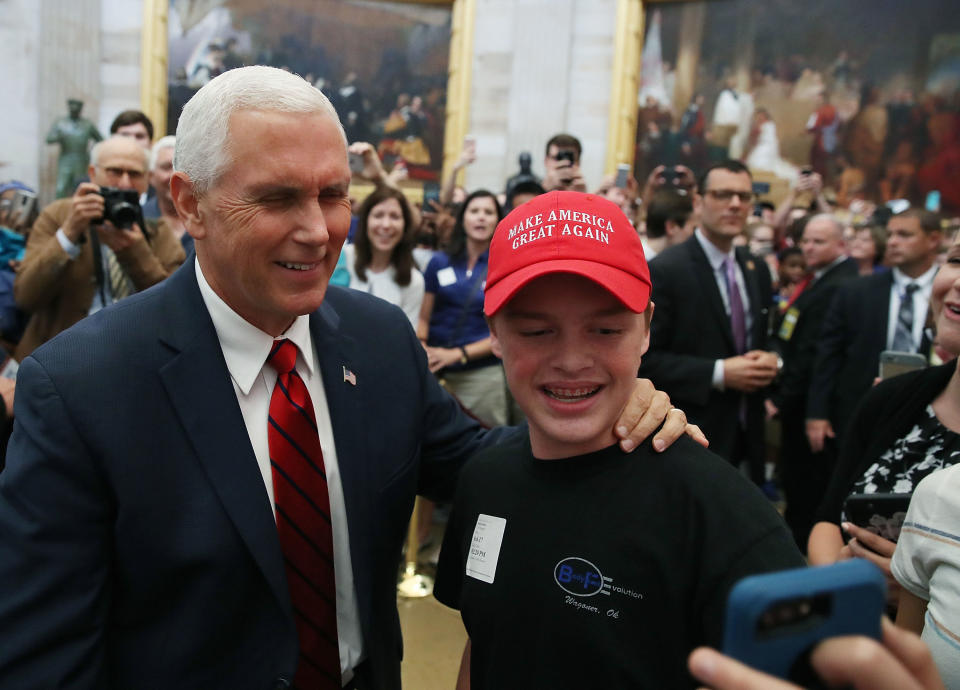
Budget Queries
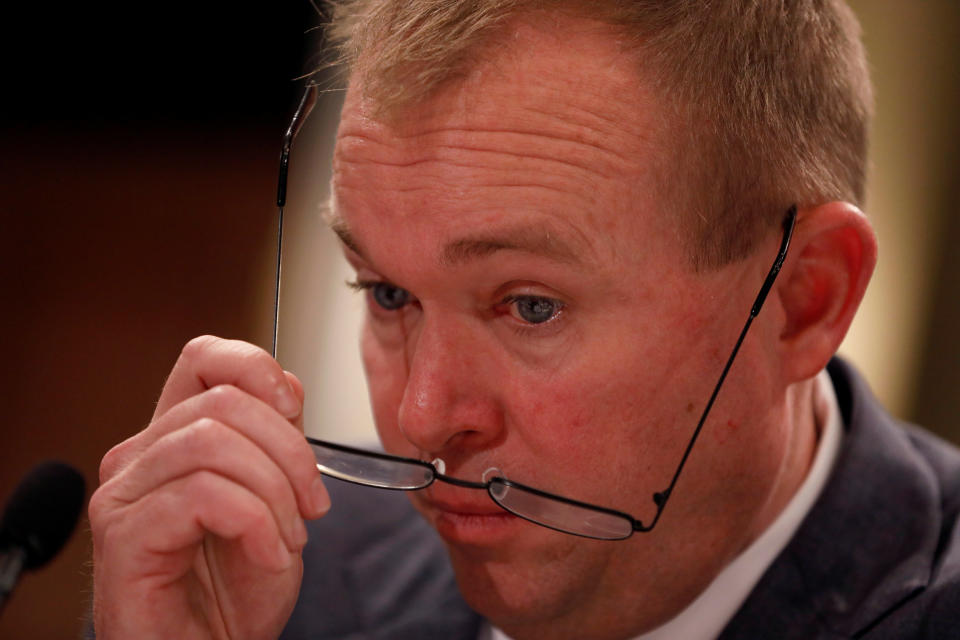
Flagged Down By Reporters
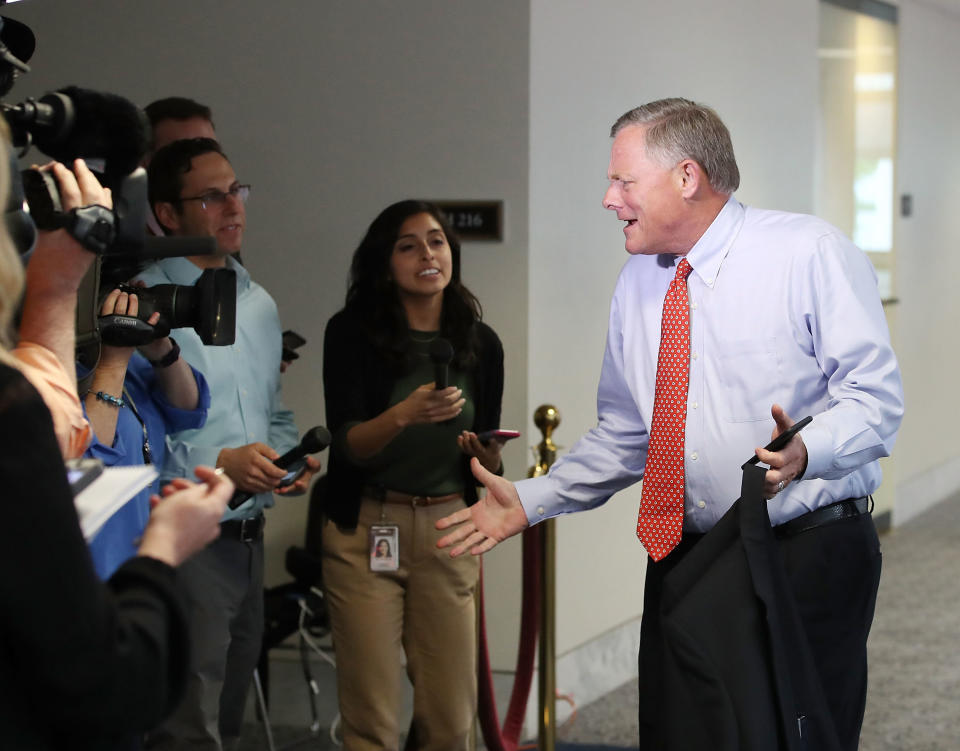
Shock And Awe
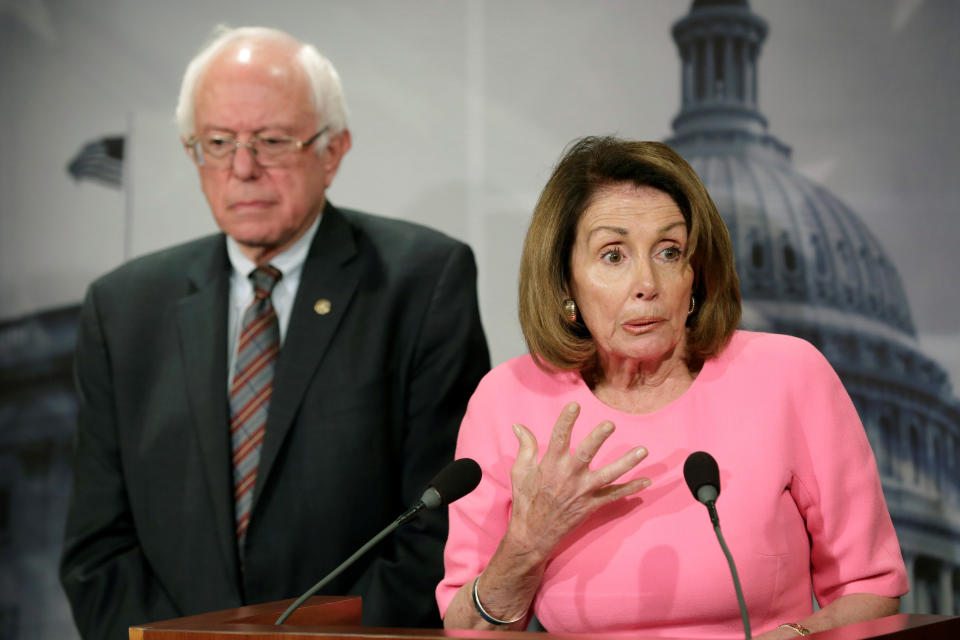
Seeing Double

Honoring Officers

Whispers

Skeptical
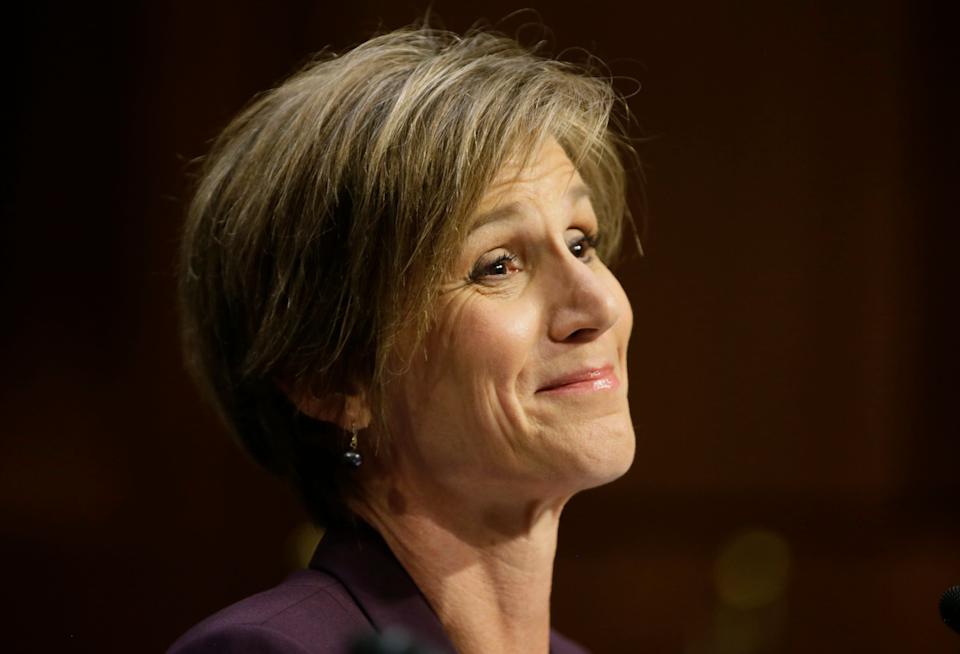
Differing Opinions
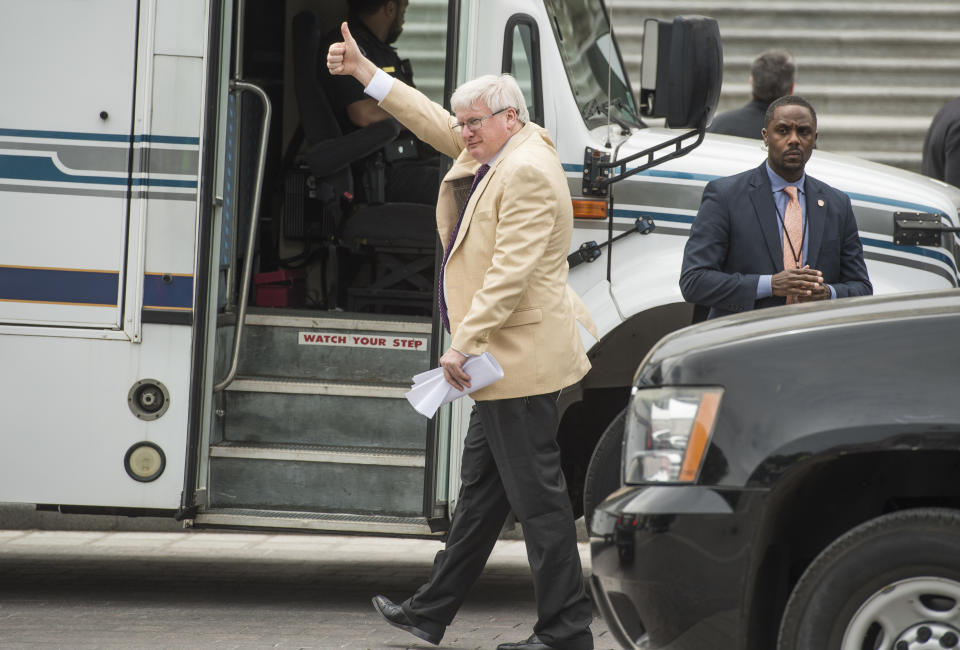
Real Talk
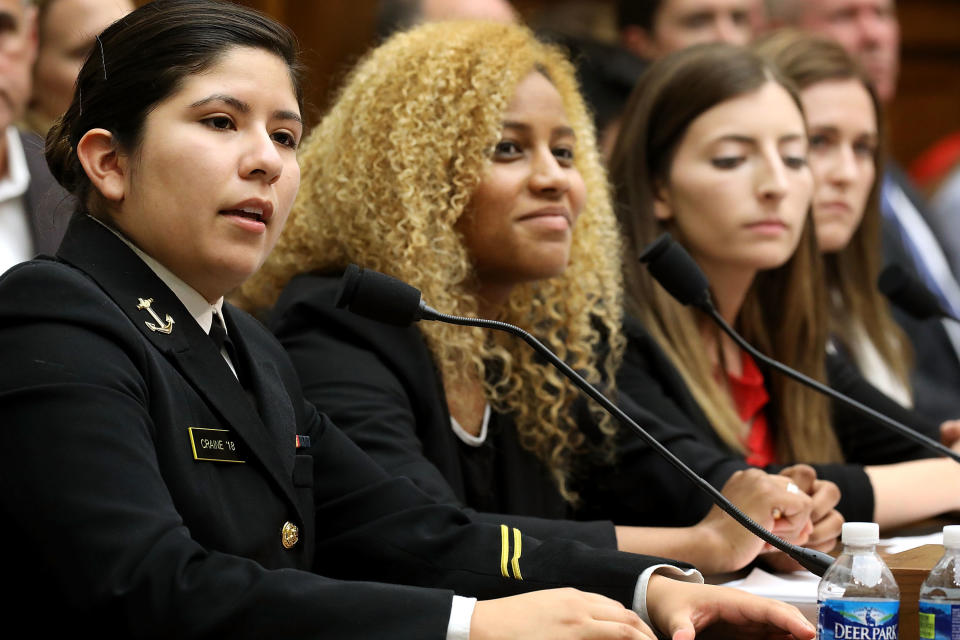
In Support Of Immigrants
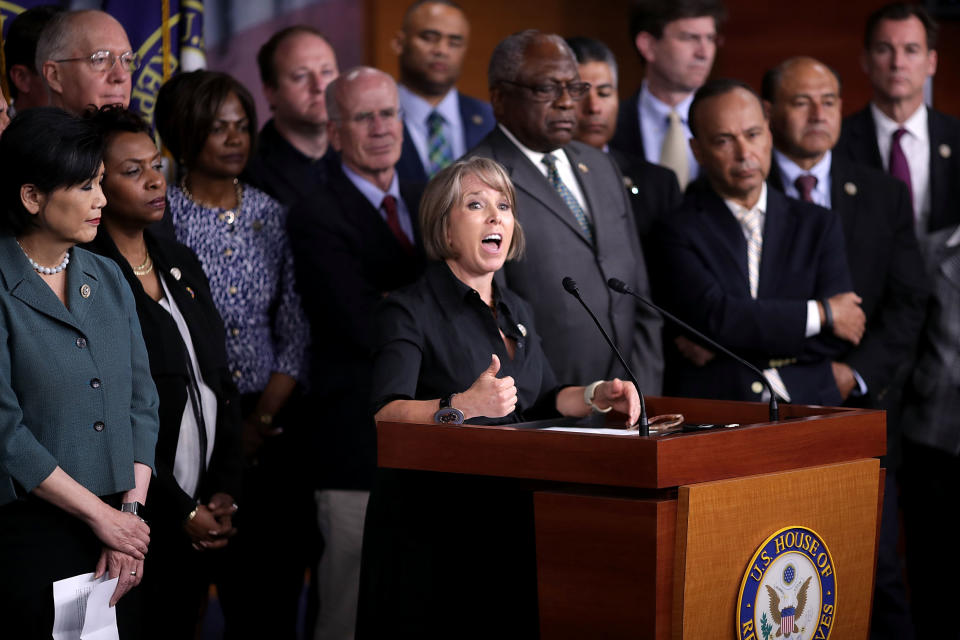
This article originally appeared on HuffPost.

